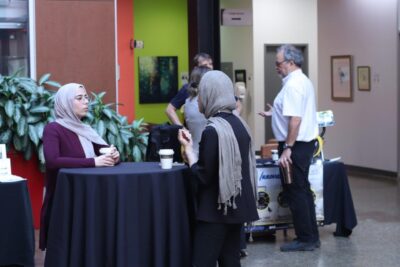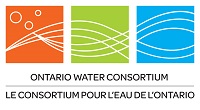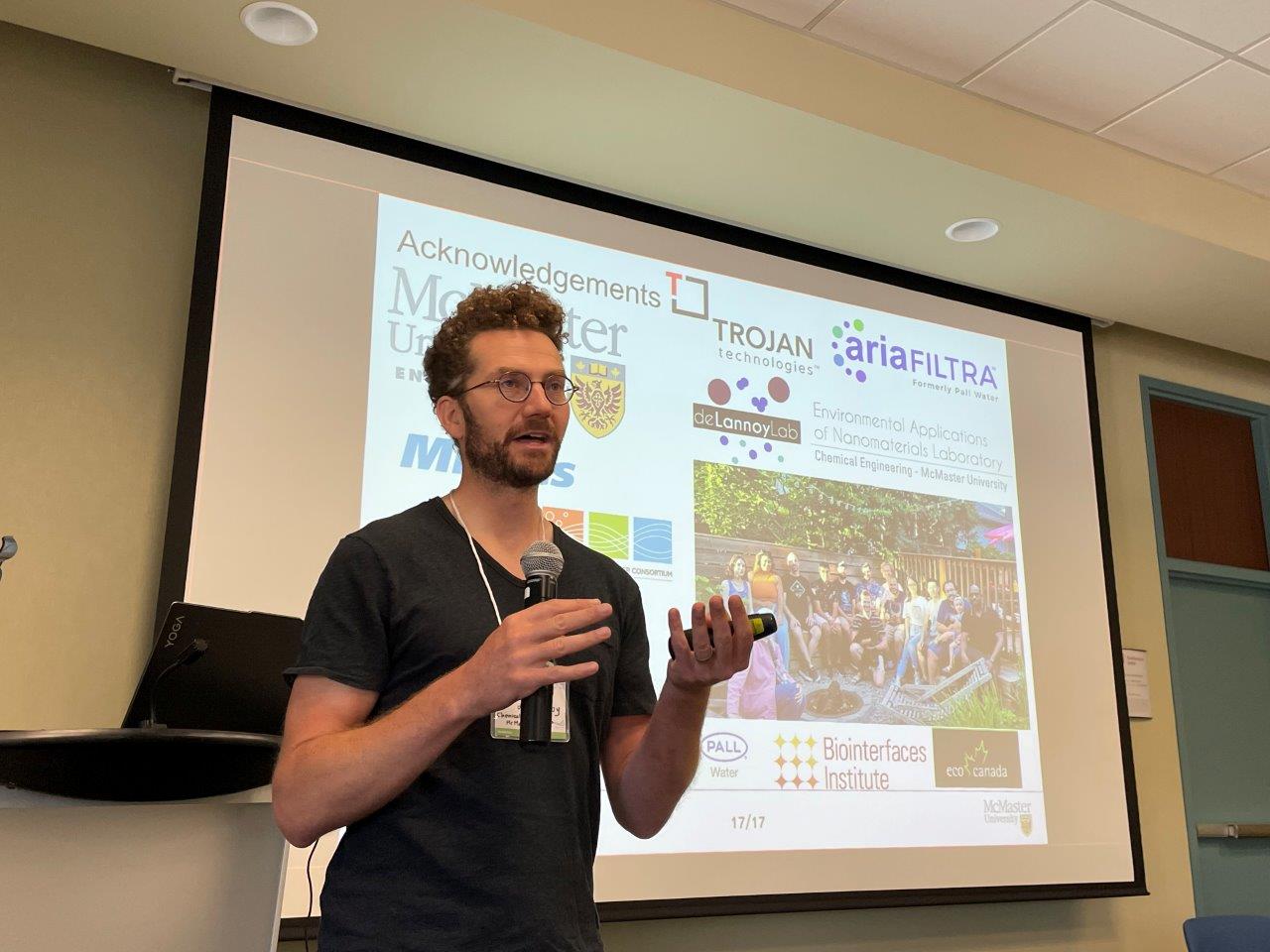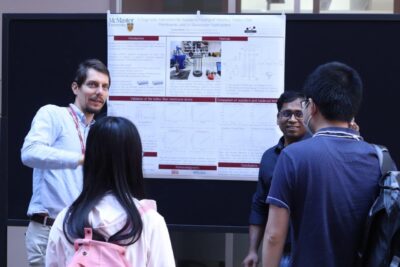The 2024 Challenges in Water Monitoring meeting, held on July 25 at McMaster Innovation Park, brought together leading experts, researchers, and industry professionals to discuss the latest advancements and collaborative efforts in water monitoring technologies. Organized by the MacWater Diagnostic Research Initiative, this bi-annual event aims to foster innovation and develop integrated water-sensing technologies through interdisciplinary research and partnerships.
The MacWater Diagnostic Research Initiative is a provincially-funded project dedicated to advancing integrated water-sensing technologies through collaborative research and partnerships. The theme of this year’s meeting centered on creating effective translational research partnerships in three pivotal areas: environmental microbial monitoring, wastewater treatment, and sensor technology development. The meeting emphasized the importance of aligning research with stakeholder goals and leveraging strategic funding from municipal, provincial, and federal sources to address complex water-related challenges. By uniting key stakeholders, the event aimed to foster future collaborations and inspire innovative solutions in the field of water monitoring.
The meeting began with a welcome address by Herb Schellhorn from McMaster University, who emphasized the significance of translational research partnerships in three critical areas: environmental microbial monitoring, wastewater treatment, and sensor technology development. He highlighted the need to bridge the gap between research and practical applications to tackle the complex challenges associated with water monitoring effectively.
environmental microbial monitoring, wastewater treatment, and sensor technology development. He highlighted the need to bridge the gap between research and practical applications to tackle the complex challenges associated with water monitoring effectively.
A key discussion of the event was the Funding Research Panel, which provided valuable insights into funding opportunities and strategies for water-related research projects. Representatives from various funding bodies, including Glen Crossley from McMaster’s MILO, Ryan Caldwell and Bill Bostad from MITACS, Robert Nyman from the Ontario Water Consortium, Louisa Ho from NSERC, and Ranjit Nagra and Sarfaraz Jahangir from the Canada Revenue Agency, along with Lindsay Patel from the Ministry of Economic Development, Job Creation, and Trade (MEDJCT), discussed the importance of securing financial support to advance innovative research. Their presentations offered a comprehensive understanding of available funding avenues and the criteria for successful grant applications.
The conference showcased a series of compelling research presentations, offering a glimpse into the latest findings in water monitoring technologies. Radhey Gupta presented on the application of genome-derived molecular markers for microbial identification and classification, introducing groundbreaking methods for identifying and classifying microbes. Faizan Saleem discussed the paradigm shift in environmental monitoring through the use of new molecular technologies, highlighting the transformative impact of these advancements. Enze Li focused on the use of DNA identification to optimize anaerobic digestion and resolve related challenges, providing insights into improving wastewater treatment processes. Ravi Selvaganapathy’s presentation on detecting heavy metal sensors using hydrogel beads and Charles DeLannoy’s talk on innovations in water treatment and detection technologies, particularly in smart membranes and sensing systems, highlighted advancements in membrane technology and their applications in enhancing water treatment efficiency and monitoring water quality and safety
The keynote address by Tom Edge from McMaster University was a highlight of the event, focusing on new initiatives in Great Lakes microbial monitoring. He discussed the latest efforts by the International Joint Commission (IJC) to enhance microbial monitoring in the Great Lakes, emphasizing the importance of collaborative approaches and advanced technologies in safeguarding water quality in this crucial region.
The Technical Support Forum offered an in-depth look at advanced research tools and methodologies essential for water monitoring. Chris Butcher from the Canadian Center for Electron Microscopy (CCEM) presented on the capabilities of electron microscopy in studying water samples. Marta Princz from the Biointerfaces Institute discussed the development of diagnostic tests for water quality monitoring. Tracey Campbell from the Centre for Microbial Chemical Biology (CMCB) explained high-throughput analytical techniques for water research. João Firmino from the Center for Advanced Light Microscopy (CALM) highlighted the role of advanced light microscopy in water research, showcasing how these sophisticated tools can enhance the understanding and monitoring of water systems.
The event concluded with a vibrant poster session, where students and industry professionals presented their latest research findings and technological developments. This session provided a platform for networking, fostering new collaborations, and discussing future directions in water monitoring research. Attendees engaged with presenters, asked questions, and explored potential partnerships, making the poster session a dynamic and interactive component of the meeting.
The 2024 Challenges in Water Monitoring meeting underscored the importance of collaborative efforts in addressing water monitoring issues. By bringing together a diverse group of stakeholders, the event aimed to catalyze future interactions and drive innovation in water technology. Attendees left with a renewed sense of purpose and a wealth of knowledge to apply to their ongoing and future projects.
For more details about the event and to stay updated on future meetings, please visit the MacWater Diagnostic Research Initiative’s website.
For those interested in establishing research collaborations with MacWater faculty, please contact Monika Stolarz, Manager of External Research Partnerships in the Faculty of Science, at stolarmk@mcmaster.ca.



